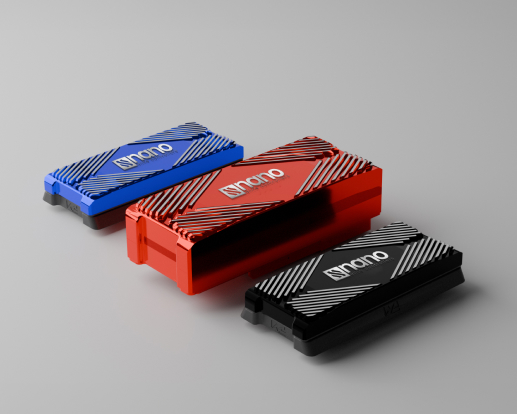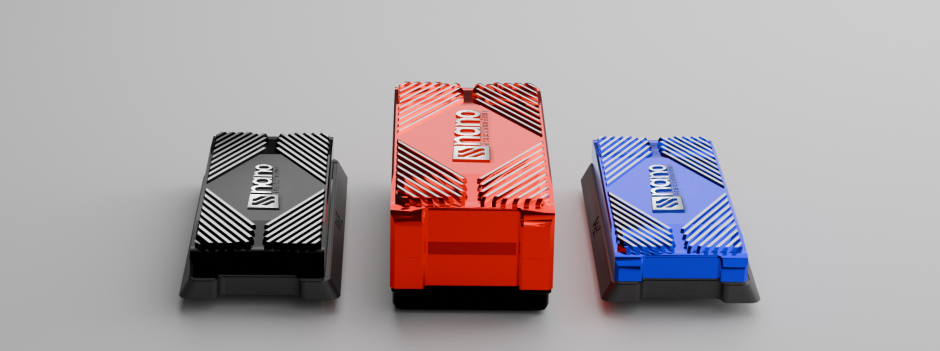
The DIY electric vehicle (EV) movement has risen in popularity as enthusiasts seek to customize, build, or retrofit vehicles for electric power.
A crucial component of the DIY EV conversion process involves choosing the right controller to manage the electric motor. Open-source options have gained traction, offering flexibility, customization, and community support.
This article explores some of the top open-source controllers available for DIY electric vehicle enthusiasts, highlighting the unique benefits they bring to individual projects.

Before delving into the options, it’s essential to understand what an EV controller does. An EV controller essentially acts as the brain of an electric vehicle, managing the power flow between the battery and the electric motor. It dictates acceleration, speed, and, in some cases, regenerative braking capabilities. For DIY projects, the choice of controller can significantly impact the vehicle’s performance, efficiency, and overall drive experience.
1. Open ReVolt
One of the pioneering projects in the open-source EV controller space, Open ReVolt, offers schematics and software for anyone looking to build their own controller. Aimed at small to medium-sized EV conversions, it supports a wide range of DIY projects, from electric bicycles to small cars.
2. VESC (Vedder Electronic Speed Controller)
Developed by Benjamin Vedder, the VESC is a highly versatile open-source ESC (Electronic Speed Controller) primarily used for electric skateboards but adaptable for a variety of EV applications. Its software allows extensive customizability, including setting acceleration curves and regenerative braking strength.
3. Arduino Based Controllers
Arduino boards, known for their ease of use and flexibility, can be programmed to control electric motors. While not exclusively designed for EVs, the Arduino platform allows enthusiasts to develop their controllers with custom features tailored to their specific needs.
4. Curtis Controllers (with custom firmware)
While Curtis controllers are commercial products, there’s a trend in the DIY community towards customizing these with open-source firmware. This approach combines the robust hardware of a commercial controller with the flexibility and adaptability of open-source software.

When selecting a controller for a DIY EV project, consider the following factors:
The trend towards open-source in the EV controller domain is empowering enthusiasts to push the boundaries of what’s possible in electric vehicle design and customization. As technology advances and more people contribute to open-source projects, we can expect to see even more capable and user-friendly controllers becoming available, making DIY EV projects more accessible to a broader audience.
For DIY electric vehicle enthusiasts, the choice of controller significantly influences the project’s success. Open-source options offer a promising route, providing flexibility, customization, and a supportive community.
Whether you’re converting a vintage car, building an electric bike from scratch, or experimenting with novel electric vehicles, there’s likely an open-source controller that meets your needs. By carefully considering your project’s specific requirements and leveraging the collective knowledge of the DIY EV community, you can select a controller that brings your electric dream vehicle to life.
Electric scooters have gained popularity as a convenient and environmentally friendly...
In the fast-paced, ever-evolving world of personal transportation, electric scooters have...
The choice between utilizing Plug & Play controllers and designing custom...

72 Volts 30 Ah (2016Wh charge)
Equipped with a long-lasting battery for extended rides and adventures

Dual 3000W BLDC Hub Motors
Powerful dual-engine setup delivers dynamic performance for performance seekers

6 hours fast charging so you can spend less time waiting and more time exploring

110 km/h
Top-tier speed capabilities for the rush of wind and the thrill of pace

100 km
Ready for long journeys with a generous range that keeps you moving

120 kg
Robust build accommodates significant weight, ensuring a ride for all

Disk brake with dual 8 pistons (Front and Rear), E-Brake Included

PMT Italian Slick & Stradale 11-inch tubeless
High-quality tires designed for optimal traction and control in various conditions.

1230 mm
Streamlined design ensures a compact footprint for agile urban navigation.

1290 mm
Elevated stance provides a commanding view of the road ahead.

266 mm
Narrow build offers convenient maneuverability through tight spaces.

540 mm
Quick-fold mechanism reduces the scooter to a compact form for easy storage and portability.

Carbon fiber and CNC 6061 aluminum

IPX67-rated components

Optimized for minimal air resistance

Enjoy peace of mind with a comprehensive warranty covering your scooter

Complete with essential accessories, get everything you need to hit the road immediately

Two 150 AMP Nano Elite X5K
Precision control at your fingertips with advanced, customizable settings."

Choose from classic color options to match your style

72 Volts 30 Ah (2016Wh charge)
Equipped with a long-lasting battery for extended rides and adventures

Dual 3000W BLDC Hub Motors
Powerful dual-engine setup delivers dynamic performance for performance seekers

6 hours fast charging so you can spend less time waiting and more time exploring

110 km/h
Top-tier speed capabilities for the rush of wind and the thrill of pace

100 km
Ready for long journeys with a generous range that keeps you moving

120 kg
Robust build accommodates significant weight, ensuring a ride for all

Disk brake with dual 8 pistons (Front and Rear), E-Brake Included

PMT Slick Italian 11-inch
High-quality tires designed for optimal traction and control in various conditions.

1230 mm
Streamlined design ensures a compact footprint for agile urban navigation.

1290 mm
Elevated stance provides a commanding view of the road ahead.

266 mm
Narrow build offers convenient maneuverability through tight spaces.

540 mm
Quick-fold mechanism reduces the scooter to a compact form for easy storage and portability.

Carbon fiber and CNC 6061 aluminum

IPX67-rated components

Optimized for minimal air resistance

Enjoy peace of mind with a comprehensive warranty covering your scooter

Two 150 AMP Nano Elite X5K
Precision control at your fingertips with advanced, customizable settings."

Choose from classic color options to match your style

60 Volts 30 Ah (2016Wh charge)
Equipped with a long-lasting battery for extended rides and adventures

Dual 3000W BLDC Hub Motors
Powerful dual-engine setup delivers dynamic performance for performance seekers

6 hours fast charging so you can spend less time waiting and more time exploring

110 km/h
Top-tier speed capabilities for the rush of wind and the thrill of pace

100 km
Ready for long journeys with a generous range that keeps you moving

120 kg
Robust build accommodates significant weight, ensuring a ride for all

Disk brake with dual 8 pistons (Front and Rear), E-Brake Included

Front and Rear Single Absorbers
Smooth rides guaranteed with a suspension system that absorbs shocks and jolts

PMT Italian Stradale 11-inch tubeless
High-quality tires designed for optimal traction and control in various conditions.

1170 mm
Streamlined design ensures a compact footprint for agile urban navigation.

1250 mm
Elevated stance provides a commanding view of the road ahead.

241 mm
Narrow build offers convenient maneuverability through tight spaces.

470 mm
Quick-fold mechanism reduces the scooter to a compact form for easy storage and portability.

Carbon fiber and CNC 6061 aluminum

IPX67-rated components

Optimized for minimal air resistance

Enjoy peace of mind with a comprehensive warranty covering your scooter

Complete with essential accessories, get everything you need to hit the road immediately

Safety first with a helmet that combines comfort with protection

Two 150 AMP Nano Elite X5K
Precision control at your fingertips with advanced, customizable settings."

Choose from classic color options to match your style

60 Volts 30 Ah (2016Wh charge)
Equipped with a long-lasting battery for extended rides and adventures

Single 3000W BLDC Hub
Powerful dual-engine setup delivers dynamic performance for performance seekers

6 hours fast charging so you can spend less time waiting and more time exploring

100 km/h
Top-tier speed capabilities for the rush of wind and the thrill of pace

100 km
Ready for long journeys with a generous range that keeps you moving

120 kg
Robust build accommodates significant weight, ensuring a ride for all

Disk brake with dual 8 pistons (Front and Rear), E-Brake Included

Front and Rear Single Absorbers
Smooth rides guaranteed with a suspension system that absorbs shocks and jolts

PMT Italian Stradale 11-inch tubeless
High-quality tires designed for optimal traction and control in various conditions.

1170 mm
Streamlined design ensures a compact footprint for agile urban navigation.

1250 mm
Elevated stance provides a commanding view of the road ahead.

241 mm
Narrow build offers convenient maneuverability through tight spaces.

470 mm
Quick-fold mechanism reduces the scooter to a compact form for easy storage and portability.

Carbon fiber and CNC 6061 aluminum

IPX67-rated components

Optimized for minimal air resistance

Enjoy peace of mind with a comprehensive warranty covering your scooter

One 150 AMP Nano Elite X5K
Precision control at your fingertips with advanced, customizable settings."

Choose from classic color options to match your style
One of our specialists will be in touch within the next 24-48 hours to assist you. We appreciate your interest in our scooters and look forward to speaking with you soon!”

72 Volts 30 Ah (2016Wh charge)
Equipped with a long-lasting battery for extended rides and adventures

Dual 3000W BLDC Hub Motors
Powerful dual-engine setup delivers dynamic performance for performance seekers

6 hours fast charging so you can spend less time waiting and more time exploring

110 km/h
Top-tier speed capabilities for the rush of wind and the thrill of pace

100 km
Ready for long journeys with a generous range that keeps you moving

120 kg
Robust build accommodates significant weight, ensuring a ride for all

Disk brake with dual 8 pistons (Front and Rear), E-Brake Included

PMT Italian Slick & Stradale 11-inch tubeless
High-quality tires designed for optimal traction and control in various conditions.

1230 mm
Streamlined design ensures a compact footprint for agile urban navigation.

1290 mm
Elevated stance provides a commanding view of the road ahead.

266 mm
Narrow build offers convenient maneuverability through tight spaces.

540 mm
Quick-fold mechanism reduces the scooter to a compact form for easy storage and portability.

Carbon fiber and CNC 6061 aluminum

IPX67-rated components

Optimized for minimal air resistance

Enjoy peace of mind with a comprehensive warranty covering your scooter

Complete with essential accessories, get everything you need to hit the road immediately

Two 150 AMP Nano Elite X5K
Precision control at your fingertips with advanced, customizable settings."

Choose from classic color options to match your style

72 Volts 30 Ah (2016Wh charge)
Equipped with a long-lasting battery for extended rides and adventures

Dual 3000W BLDC Hub Motors
Powerful dual-engine setup delivers dynamic performance for performance seekers

6 hours fast charging so you can spend less time waiting and more time exploring

110 km/h
Top-tier speed capabilities for the rush of wind and the thrill of pace

100 km
Ready for long journeys with a generous range that keeps you moving

120 kg
Robust build accommodates significant weight, ensuring a ride for all

Disk brake with dual 8 pistons (Front and Rear), E-Brake Included

PMT Slick Italian 11-inch
High-quality tires designed for optimal traction and control in various conditions.

1230 mm
Streamlined design ensures a compact footprint for agile urban navigation.

1290 mm
Elevated stance provides a commanding view of the road ahead.

266 mm
Narrow build offers convenient maneuverability through tight spaces.

540 mm
Quick-fold mechanism reduces the scooter to a compact form for easy storage and portability.

Carbon fiber and CNC 6061 aluminum

IPX67-rated components

Optimized for minimal air resistance

Enjoy peace of mind with a comprehensive warranty covering your scooter

Two 150 AMP Nano Elite X5K
Precision control at your fingertips with advanced, customizable settings."

Choose from classic color options to match your style

60 Volts 30 Ah (2016Wh charge)
Equipped with a long-lasting battery for extended rides and adventures

Dual 3000W BLDC Hub Motors
Powerful dual-engine setup delivers dynamic performance for performance seekers

6 hours fast charging so you can spend less time waiting and more time exploring

110 km/h
Top-tier speed capabilities for the rush of wind and the thrill of pace

100 km
Ready for long journeys with a generous range that keeps you moving

120 kg
Robust build accommodates significant weight, ensuring a ride for all

Disk brake with dual 8 pistons (Front and Rear), E-Brake Included

Front and Rear Single Absorbers
Smooth rides guaranteed with a suspension system that absorbs shocks and jolts

PMT Italian Stradale 11-inch tubeless
High-quality tires designed for optimal traction and control in various conditions.

1170 mm
Streamlined design ensures a compact footprint for agile urban navigation.

1250 mm
Elevated stance provides a commanding view of the road ahead.

241 mm
Narrow build offers convenient maneuverability through tight spaces.

470 mm
Quick-fold mechanism reduces the scooter to a compact form for easy storage and portability.

Carbon fiber and CNC 6061 aluminum

IPX67-rated components

Optimized for minimal air resistance

Enjoy peace of mind with a comprehensive warranty covering your scooter

Complete with essential accessories, get everything you need to hit the road immediately

Safety first with a helmet that combines comfort with protection

Two 150 AMP Nano Elite X5K
Precision control at your fingertips with advanced, customizable settings."

Choose from classic color options to match your style

60 Volts 30 Ah (2016Wh charge)
Equipped with a long-lasting battery for extended rides and adventures

Single 3000W BLDC Hub
Powerful dual-engine setup delivers dynamic performance for performance seekers

6 hours fast charging so you can spend less time waiting and more time exploring

100 km/h
Top-tier speed capabilities for the rush of wind and the thrill of pace

100 km
Ready for long journeys with a generous range that keeps you moving

120 kg
Robust build accommodates significant weight, ensuring a ride for all

Disk brake with dual 8 pistons (Front and Rear), E-Brake Included

Front and Rear Single Absorbers
Smooth rides guaranteed with a suspension system that absorbs shocks and jolts

PMT Italian Stradale 11-inch tubeless
High-quality tires designed for optimal traction and control in various conditions.

1170 mm
Streamlined design ensures a compact footprint for agile urban navigation.

1250 mm
Elevated stance provides a commanding view of the road ahead.

241 mm
Narrow build offers convenient maneuverability through tight spaces.

470 mm
Quick-fold mechanism reduces the scooter to a compact form for easy storage and portability.

Carbon fiber and CNC 6061 aluminum

IPX67-rated components

Optimized for minimal air resistance

Enjoy peace of mind with a comprehensive warranty covering your scooter

One 150 AMP Nano Elite X5K
Precision control at your fingertips with advanced, customizable settings."

Choose from classic color options to match your style
I, hereby acknowledge that I have read, understood, and agree to be bound by the Terms and Service (“Terms”) outlined by Flashmotors LTD in relation to the purchase and use of their scooters. By accepting these Terms, I affirm that I am of legal age and possess the necessary authority to enter into this agreement.
I specifically acknowledge and agree to the following:
1. Legal Notice: I am aware that the scooters provided by Flashmotors LTD are intended for personal use and must be operated in compliance with all applicable laws and regulations of Cyprus.
2. Withdrawal, Return, Refund, and Cancellation Policy: I understand that as per Cyprus law, I have the right to withdraw from the purchase contract within 14 days of receiving the Product. I agree to follow the specified procedures regarding withdrawal, return, and refund, including returning the Product in its original condition.
4. Complaint Policy: In the event of any issues or concerns with the Product, I agree to promptly contact the customer service team of Flashmotors LTD providing necessary information to assist in resolving the complaint.
5. Liabilities under Cyprus Law: I acknowledge that any liability or obligation arising from these Terms is subject to the laws and regulations of Cyprus. I understand that any dispute related to these Terms shall be subject to the exclusive jurisdiction of the courts of Cyprus.
6. Acceptance of Communication Terms: By providing your contact information and checking the designated boxes during account registration, or by entering your contact details on Flashmotors.com, you expressly consent to receive promotional and informational communications via SMS and email from Flashmotors.
I further acknowledge that Flashmotors LTD reserves the right to modify or update these Terms at any time, with the revised Terms becoming effective immediately upon posting on their website.
By accepting these Terms and Conditions, I confirm that I have reviewed and understood all the provisions contained therein, and I agree to be bound by them in their entirety.